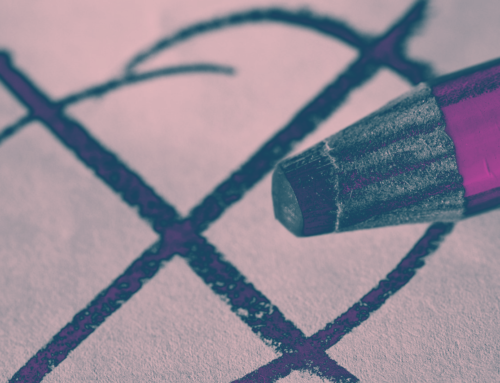
Ngan Huynh sits at the kitchen table in her family’s Dorchester apartment, bowed over a sheaf of government documents. The 16-year-old is used to translating the complex verbiage to her parents, both Vietnamese immigrants who don’t speak English. Like other residents within the Asian American enclave in Greater Boston, Huynh and her family feel the pressure to support themselves while navigating ongoing threats of displacement.
As the Vietnamese community in Dorchester continues to face eviction amidst rent hikes in addition to deportation threats, Huynh eases her feelings of isolation by collaborating with her peers to plan an upcoming youth-led, anti-displacement summit.
“I cannot imagine what my parents were going through, coming over from Vietnam, trying to make ends meet,” Huynh said. “So by choosing this project, I’m trying to offer others, who are struggling with displacement, the help that my family never got growing up.”
Roughly five months ago, Huynh and nine other youth leaders, ranging in age from 16 to 20, began planning the event to educate Dorchester and Greater Boston residents about threats of displacement in their own communities. As a part of the Dorchester Organizing Training Initiative (DOT-I), a program within the nonprofit Asian American Resource Workshop, the Vietnamese teenagers gather to learn about identity-based issues occurring in Asian American and Pacific Islander communities.
Dorchester has one of the highest eviction rates in the Greater Boston area, following a national trend of neighborhoods with large communities of color having the most evictions. According to reports from the Boston Planning and Development Agency, Dorchester has the highest diversity index out of all Greater Boston neighborhoods.
On April 13, the group will present curriculum and activities educating attendees about the external and internal pressures displacing Asian Americans. They are still finalizing the event’s venue.

Like Huynh, the youth leaders have witnessed and at times, experienced, rising rent prices and threats of deportation firsthand. Olivia Nichols, director of programs at the Asian American Resource Workshop, said these issues youth face in cultural enclaves like Dorchester make their activism all the more valuable.
“It is their lives and the houses they grew up in. What their families are currently facing, [that] is the work,” Nichols said. “That’s why it’s important to have these spaces, because who is it going to be if not the young people growing up in these neighborhoods that are informing the direction that the organization overall is heading in?”
With pivotal legislation like the federal Southeast Asian Deportation Relief Act (SEADRA) act being debated at the national level, the youth leaders hope to rally support at their event. SEADRA would protect AAPI immigrants from Vietnam, Cambodia, and Laos from deportation, given they immigrated prior to 2008. Since the Trump administration’s reinforcement of a 1996 Congressional law called the Illegal Immigration Reform and Immigrant Responsibility Act. The representatives proposing SEADRA estimate that over 1,000 Cambodians have been deported since 2002.
Thy Chea, a Cambodian man and resident of Lowell, MA was deported in 2018 for a crime he had already served time for. Thanks to AARW and a pro-bono legal firm, Chea was able to return to the U.S. in 2020. Though his return was a remarkable victory, localized stories of displacement both sadden and motivate the youth leaders.
“In the summer, we were focused a lot more on direct actions, petitions [were] a main focus,” Teresa Tran, program director of DOT-I, said. This year, we’re kind of taking a step back, trying to build our base and get more people educated.”

Similar to the youth leaders, Tran’s upbringing in Dorchester motivated her passion for activism.
“As a young person who grew up in Dorchester, what I was looking for was community, and community that was consistent,” Tran said. “People of color in Dorchester need to be able to stay in Dorchester. And rent prices, all of that has really contributed to the fact that a lot of folks have left.”
The average, monthly rental price in Dorchester increased by 8% from 2019-2021 according to the Mayor’s Office of Housing. This trend was only exacerbated by the pandemic. A national study found that one in four AAPI renters are severely cost-burdened, with Vietnamese renters being some of the most vulnerable to housing injustice.
Brooke Vo, a Vietnamese 19-year-old, remembers the childhood friends who were forced to leave her Dorchester neighborhood because of rising rent prices.
“My neighborhood was a lot more Vietnamese. Now with the apartment on my street and the houses being put on sale, the neighbors that I went to birthday parties with and the actual people I grew up with aren’t here anymore,” Vo, who joined DOT-I in 2023, said.
Vo and Salroh Abdol, 17, are collaborating with their fellow group members to gain visibility and support for Asian American residents facing housing injustice. Abdol estimates that her family’s rent has increased by $1000 in the past decade.
“We want people who come and participate in our activities to get a touch and feel of how it actually is for people who live in these communities,” Abdol said. “I’m talking about community members who are not able to afford rent, being pushed out of the community due to gentrification and redlining.”
One of the event’s planned activities is a sobering spin on the Game of Life. Abdol said players will face the stressors of job losses and rent hikes, obstacles inspired by the experiences of Vietnamese residents.
“I hope people from the summit will take away that these are real situations that are happening and that we can help these people out as much as possible,” Abdol said.
Additionally, Huynh invited immigrants who have been victims of displacement to speak at the event.
“I think the most important part of social justice is the power of a massive community. With a lot of these problems, you can feel really isolated and powerless if you’re one person fighting it,” Huynh said. “So what we’re trying to do is, of course, raise awareness but beyond that, encourage people to take action.”
As the event date approaches, Huynh and the leaders reflect on the future, for DOT-I and themselves. Abdol and Vo plan to continue their community advocacy after they graduate from the training initiative.
“I’m just so into it,” Abdol said. “I’ve been doing this for a while. I would not know any of this stuff without being a part of DOT-I or being a part of the program with other youth. It feels really refreshing that I can help out my community.”
Huynh hopes to apply her social justice experience to the medical field, advocating for required implicit bias training within hospitals.
“I feel really blessed to be in a community where this awareness was taught to me at a young age,” Huynh said. “That shows in the work I’m doing.”
The summit is being held on Sunday, April 13th in Dorchester. Information to RSVP and to get involved can be found at their website: aarw.org



